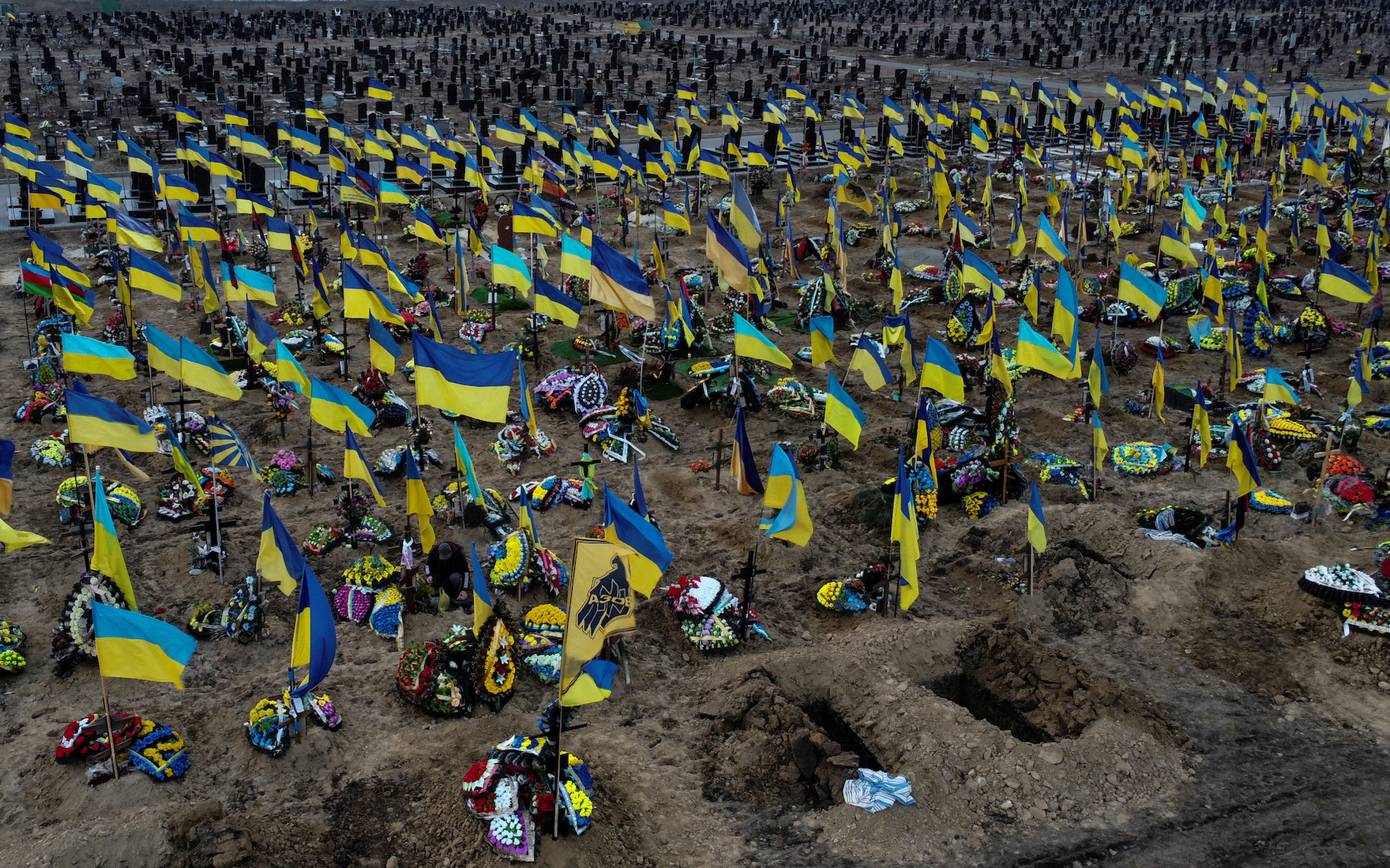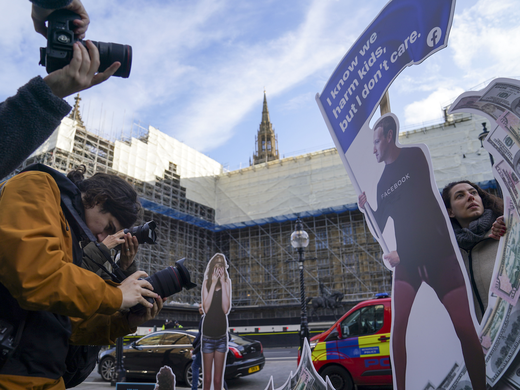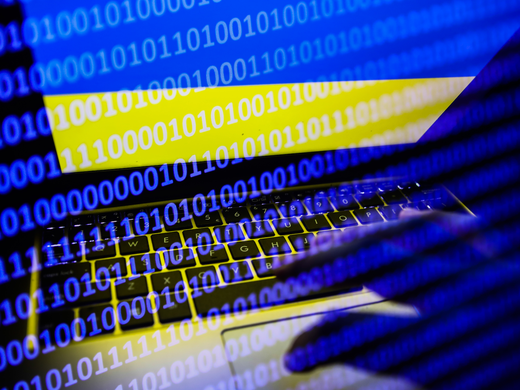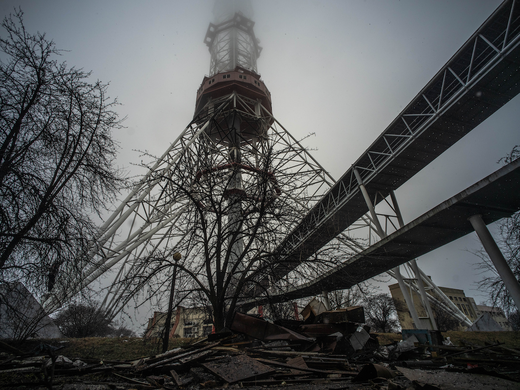CIGI asked four experts, “How has the world changed, one year after Russia’s full invasion of Ukraine?” Here are their responses.
Dan Ciuriak, Centre for International Governance Innovation
Russia’s invasion of Ukraine has forced us to rethink the geopolitics of the world order emerging under the economic and technological conditions created by the foundational technologies of this era — big data, machine learning and artificial intelligence. What were we thinking: who would capture the economic rents and military benefits, and who would write the rules? Who were we watching? The United States, which led in the development of the technologies and had first-mover advantage at the firm level; China, which was investing massively and leveraging its internal scale; and the European Union, which led in developing the regulatory framework while trying to catch up on the commercial applications.
Social media sowed divisiveness in the West to help prepare the ground for Vladimir Putin’s move to recreate the Russian Empire.
Who was watching Russia? Russia was leveraging its decades of ideological warfare experience inherited from Soviet Union days to exploit the vulnerabilities of open societies that the data-driven economy had magnified by enabling the microtargeting of information through social media. Social media sowed divisiveness in the West to help prepare the ground for Vladimir Putin’s move to recreate the Russian Empire. The carnage of mechanized war is in Ukraine; with blinding 20-20 hindsight, we are starting to see that the social and political carnage is here.
Kyle Hiebert, Researcher and Analyst
Russia invading Ukraine was a death knell for the post–Cold War paradigm of globalization, which was already reeling in its twilight. Ideology has since mostly displaced realpolitik as the driving force behind the decision-making processes of major powers and their allies. The war has also underscored the growing agency and importance of countries in the Global South, which have vexed Western capitals by refusing to condemn, much less isolate, Vladimir Putin’s regime over its scorched-earth cruelty. For their part, liberal democratic states have rediscovered the necessity of hard power — their hegemony of the past three decades having relied instead on institutional strength and a push to economic interdependence. A new arms race is now under way to amass conventional and high-tech weaponry, which will be both expensive and antagonistic. Likewise, the ratcheting up of protectionist measures worldwide will hurt consumers — thereby inflaming domestic politics — and make addressing collective problems like the climate crisis much more complex.
The war has…underscored the growing agency and importance of countries in the Global South, which have vexed Western capitals by refusing to condemn, much less isolate, Vladimir Putin’s regime.
In the face of authoritarian aggression, democracies have shown solidarity and flexibility to be their core advantages; whether governments and citizens alike can sustain the political will necessary to maintain a united front in defence of liberal democratic values is the question; the answer will shape whatever new, undefined era we’ve now entered.
Marie Lamensch, Montreal Institute for Genocide and Human Rights Studies, Concordia University
An aspect of the war in Ukraine that has not received sufficient attention is the gendered impact of the conflict on women and girls in Ukraine and globally. Gender and gender dynamics shape conflicts as surely as conflicts shape gender dynamics and roles. The multitudinous consequences of war deepen pre-existing gender inequalities and lay bare the security and socioeconomic vulnerabilities of women and girls as they try to lead their lives and make their living, putting them at greater risk of gender-based violence and discriminations.
The multitudinous consequences of war deepen pre-existing gender inequalities and lay bare the security and socioeconomic vulnerabilities of women and girls.
In times of crisis, digital skills and access to digital resources can play a crucial role in increasing the socioeconomic resilience of vulnerable populations by providing people with the tools and knowledge that can help them respond to new hardships. Whether responding to conflict in Ukraine or in the Global South, we must guarantee gender-sensitive responses and policies, including in the digital realm.
Inga Trauthig, University of Texas at Austin
For researchers studying the impacts of misinformation and disinformation, this past year has been tumultuous. First, the invasion of Ukraine has foregrounded how technologies, including social media and messaging apps, are a double-edged sword. On the one hand, these technologies have proved to be useful tools for manipulation by propagandists; on the other hand, they also supply a crucial mechanism for democratic pushback and coordination in dire times. Therefore, the past year has emphasized the need for researchers, policy makers and other stakeholders interested in a democratic future to collaborate. The West certainly got a wake-up call.
The past year has emphasized the need for researchers, policy makers and other stakeholders interested in a democratic future to collaborate.
Second, the takeover of Twitter by Elon Musk has been consequential. Layoffs of broad swaths of its workforce and capricious leadership decisions, together with the degradation of the highly valued — by researchers — Twitter API (application programming interface), have left the academic world frustrated. We have reached the day of reckoning and need to find ways to analyze social media’s entanglement with societies and political systems without being at the mercy of some companies’ mercurial CEOs. This search for solutions is something qualitative researchers have already started and for which interdisciplinary collaboration is particularly important.



